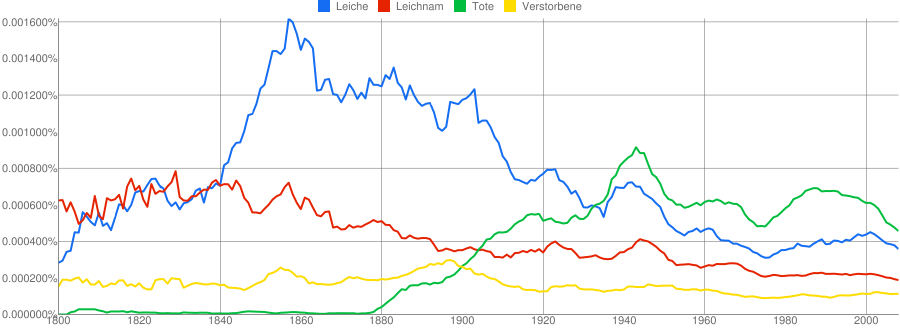There are different German nouns for a corpse. Most used are
- die Leiche
- der Leichnam
- der/die Tote
- der/die Verstorbene
A Google Ngram shows a trend towards "Tote" being increasingly used over "Leiche"

but this does not say anything on the usage of any of these alternatives.
Are there differences in meaning or connotation? Is there a context where we would prefer to use one over the other term or are these all just interchangeable synonyms?
